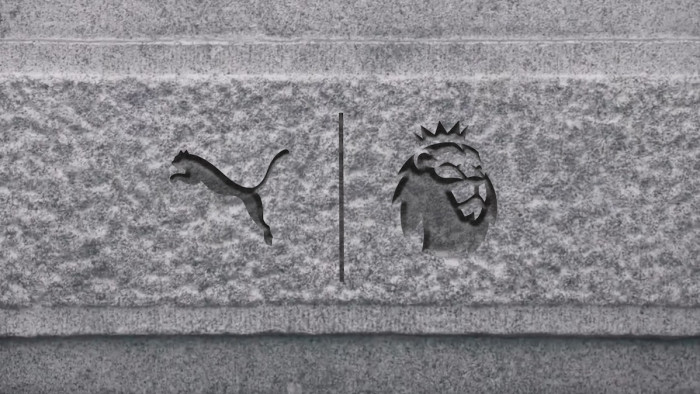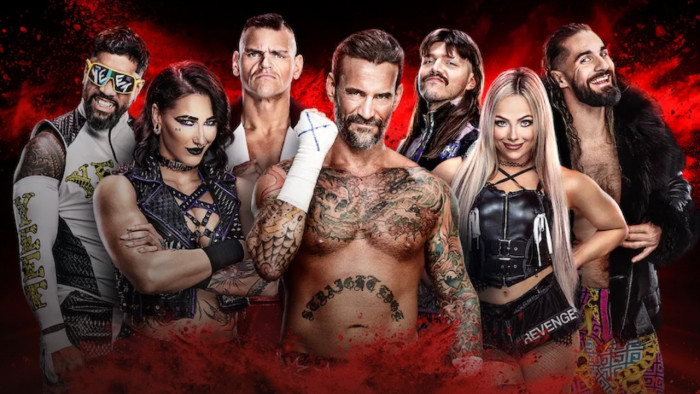What does it feel like to be a national scapegoat? And how could it affect England's World Cup dreams?
Robert Green felt the ire of the British press after his error at World Cup 2010, but does their behaviour make mistakes more likely to happen?


What was going through your mind in the moment you made your worst mistake? Were you aware you were about to make it? And what about after? Was there anyone to bear witness?
“I still get asked about it now, eight years on…” former England goalkeeper Robert Green tells me, knowingly. In all likelihood, he had no idea that he was about to make his mistake. He was probably assured that he was already in a good position to anticipate the Clint Dempsey’s speculative 25-yard effort during England’s opening game at the 2010 World Cup against the USA.
It was a rasping shot hit low and practically straight at him, skidding off the turf and losing pace all the time. It should have been a routine save, the kind that he’d made thousands of times before. The kind of save ingrained in his muscle memory, a move so instinctive that he was probably already thinking about how he was going to redistribute the ball after gratefully collecting it into his arms.
But he didn’t save it.
Maybe it was because the ball - the controversial Adidas Jabulani, introduced especially for World Cup 2010, roundly criticised for its unpredictable path of flight - skidded an unexpected second time just in front of him. Maybe it was because the angle of his body was slightly out when the ball bounced off his gloves in the manner it did. Maybe it was simply a momentary lapse, the sort of error that will eventually befall every goalkeeper at least once during careers that span decades, and it just so happened to strike Green when he was representing England at the World Cup. Maybe it happened because he was representing England at the World Cup.
Whatever the case, it’s academic. He didn’t save it. It was in his grasp, and then it wasn’t. It takes him a fraction of a second too long to realise that he hasn’t saved it, that it’s still trickling towards his goal, and so he can only lunge backwards desperately, his futile outstretched claw turning into a fist that punches the turf in agony as the ball rolls into his net. USA equalise. England’s first game of the tournament ends 1-1.
England would conspire to finish second in their group, and so face a Germany side that would convincingly beat them 4-1 in the first knockout round. Despite having been dropped from the starting eleven after the USA result, and so having relatively little to do with England’s, thereafter, disappointing campaign, Green still found himself the unenviable target of the English media’s traditional hunt for a scapegoat.
“The reaction of everyone in the aftermath was over the top, and it continued into the next season and beyond,” Green reflects. “The way the press and media attempted to drag my family and friends into it was wrong. They were twisting quotes from people who were being naive and making it back page news.”
The inevitable terrible puns (‘The Hand of Clod’ was used by two papers on the same day) would be salt in the wound enough, but alongside coverage of Green’s mistake, both The Sun and The Mirror carried cruel stories revelling in his private split from his then-girlfriend (“Dodgy shots at goal are sadly not the only thing Robert Green has trouble hanging on to”), while The Daily Telegraph took it upon themselves to vox-pop Green’s family and childhood neighbours, going so far as to ask his father if he was still proud of his son.
The press’ pitchforks can have alarming consequences. Following his red card during England’s World Cup 1998 defeat to Argentina, the media rounded on David Beckham, one headline screaming “10 Brave Lions, 1 Stupid Boy.” An effigy of Beckham would then be hanged and burnt during Manchester United’s first away game the following season.
Phil Neville would concede a last-minute penalty against Romania at Euro 2000. It was duly converted, effectively dumping England out at the group stage. Neville returned to find a St George’s cross flag burning at the gates of his home. It wouldn’t relent for months after. “When you take your wife out for a romantic meal, go to the toilet and someone threatens to punch your lights out,” he recalled. “You have to go straight home.”
The murder of Andrés Escobar five days after scoring the own goal that eliminated Colombia from World Cup 1994 should have shown just how severe the repercussions of scapegoating can be. Thankfully there hasn’t been a directly comparable incident on British soil but there is still something troubling about the English propensity to scapegoat.
“Every player makes mistakes in every game, nobody is perfect,” says Green. “It is whether you choose to focus on these things that is the difference. A manager can not like a player and say ‘he never wins a header,’ then for the remainder of the game only see the times that player doesn’t win a header.”
“I think people are looking for scapegoats [in England]. You go to New Zealand and speak to people when the All Blacks lose, it’s like it never happened. I am not saying that we should be like that, it is just a different mindset. I would imagine when Gianluigi Buffon makes a mistake, because of the career he’s had and the attitude around him, the mistakes get highlighted less often.”
A counter-argument might run that Buffon’s mistakes have never cost his national side a significant result, and so it’s hard to compare the hypothetical response, but then it must also be considered just how many of England’s goalkeepers seem to have made high-profile errors in recent times. David Seaman was infamously lobbed from a Ronaldinho free-kick against Brazil in 2002. Paul Robinson and Scott Carson made errors in separate matches with Croatia that would tank their Euro 2008 qualifying campaign. The shot Joe Hart let slip under his glove during Euro 2016 would be Iceland’s winner that halted England’s progress at Euro 2016. For otherwise reliable club goalkeepers, pulling on the Three Lions seems to be an act akin to a Samsonian haircut. Why?
“Sporting performance tends to be quite paradoxical inasmuch as the harder you try, quite often the worse it gets,” sports psychologist Dan Abrahams tells me. “As human beings, we have a stress response. When you’re under the spotlight and the scrutiny of the media, you have a stress response that can be very difficult to control. [People] can feel embarrassed very quickly, they can lose their focus and attention, they can become engulfed in emotion. When you try harder, you don’t see the 360 degree around you. Your anticipation slows.”
“Going into major tournaments, you play reasonably tentatively and you see that across all countries, it’s not just England,” Stuart Pearce tells ShortList. “You’re very nervous in the early stages and the more the games go on the more you settle into the tournament environment.”
The problem is that Abrahams suspects that caginess might be an innate quality in the national identity that bleeds into England’s sporting performance. “You can go back to how we fought the world wars with trench warfare. We tend to revert to type, and our type is very conservative, very Presbyterian. It’s playing on the backfoot, it’s trying not to lose, rather than trying to win. It’s expressing fear rather than freedom.”
He observes that Britain tend to do well at the Olympic games in mechanistic sports like cycling and rowing, where athletes can be told exactly what to do. “The problem is that quite a few nations, especially the Latin nations and the African nations, are actually very adept and very good at being far more playful under pressure. They’ll focus on keeping the ball, slowing it down, creating space. In England, we like to be very conservative, very strategic. We’re not very playful or adventurous under pressure.”
“Playing for England is intense,” explains Green. “The level of interest is magnified because, while England are playing during a tournament, there are no other games. All reporters from every medium are focusing solely on one thing. In terms of playing, it’s a more precise and measured game played at a slower tempo, so the intensity may be lower in physical aspects, but raised in the mental.”

Kyle Walker has spoken of how he’s witnessed a difference in performance from supremely talented teammates at England level. In his autobiography, Kieron Dyer candidly admitted that, when it came to England “too many players are afraid to make a mistake, because they know they will get battered by the media and fans if they don’t do well. So they do the easy thing. They try to hide. I did.”
Though the level of vilification that greeted David Beckham is rare, players will be aware that a poor performance for England can have ramifications on the rest of their career. “I don’t think it affected my game,” Green says of his howler. “It just affected everyone else and their attitudes towards me.” Until the USA game, he had collected 10 caps over two years as England’s number one. After his mistake, he would only be capped by England once again, in a friendly two years later.
If the media fuel a fear of scapegoating, and if that fear inhibits England’s players and produces performance anxiety that makes them more prone to errors, then it seems like the national side might be locked in a perpetual cycle of failure. So how do England get out of that?
“Maybe I’m idealistic,” says Abrahams. “But I think it’s about conversations revolving around helping the public having an understanding around the human mechanisms that drive failure. People fail in their workplace every day, but they don’t have a stadium watching them, they don’t have the public judging them.”
It’s strange, of course, pouring so much investment into football from a supporters’ perspective when we can affect so little of what happens on the pitch. When our team wins, we celebrate as though it’s a collective achievement we’ve been involved in. But when they lose, we seek furious retribution like we’ve been personally wronged. Footballers can either vicariously make us feel better about ourselves, or serve as our punch bags for failing to do so.
“The reality of human beings is that they enjoy a negative story,” explains Abrahams. “A paper knows that if they fuel a negative story with a bit of hyperbole, people are going to pay attention to that.” Is it the media that creates scapegoats, or are they merely satiating our desire for them?
Rio Ferdinand has already warned that this tournament will produce a scapegoat. Green echoes those fears. “I think the media, despite the openness of the FA and the squad, will still be desperate to find someone. This time it seems to be Raheem Sterling’s turn.” It’s a reference to the farcical pillorying of Sterling for doing so much as choosing to get a machine gun tattoo on his own body to honour his late father. It begs the question that if that was the reaction pre-tournament, before what will it be like should England go out?

But given England have mostly sailed into the knockout rounds with a consummate ease (disregarding their 1-0 defeat against Belgium), right now the team seems positively non-English. Even recording their highest ever win at a World Cup by beating Panama 6-1, are things finally starting to seem different?
“I don’t think the expectation level is as high these days,” says Pearce. “Supporters and the media have a realistic slant on our chances, which I think is a good thing. We’ve realised we’re a team that hasn’t won anything for 60 years at senior level. But over the last six years, the England youth teams are starting to win things. That really buoys me up.”
It certainly seems encouraging that this generation of players have emerged from England youth sides aware of what it is to win and how to do it, rather than how not to lose, particularly when expectations are - as Pearce says - lower than they have been for decades. But could this breed overconfidence? Is this team being built up quietly for an even more vicious backlash, should they go out?
“I am a big believer in having positive vibes and energies through a group,” insists Green. “If there are negative voices they need to be shut out. It would be great to open a newspaper and listen to people with constructive things to say, but in general, I’d like to see a positive and supportive vibe towards the team, as I am sure everybody genuinely wants them to do well.”
“I think there’s a slight lack of realism, but we all want to win,” concludes Abrahams. “At the end of the day, it’s up the FA and those footballers to try to produce the brand of football that gives us the best opportunity to win. They have to be better at helping people understand how people perform under pressure. We haven’t done that well enough, we need to strive to do better and I think the FA are getting better.”
So, in theory, if England get better at learning to perform under pressure, they will begin to play more expressively. And if they begin to play more expressively, the results will start to come, and so the appetite for negative stories will wane. And when players are able to represent England without worrying that they might become the latest heir to the nation’s scapegoat throne, the pressure will begin to affect their performance less. It’s a case of trying to replace the cycle of negativity that has mired England for so many years of hurt, with a positive one. It’s a lot easier said than done, but with incremental changes - whether it be a greater involvement of psychologists in football, the level of expectation on the squad, and a conscious weakening in the appetite for scapegoats - it can be done.
Additional reporting: Phil Catchpole
Latest
Related Reviews and Shortlists









